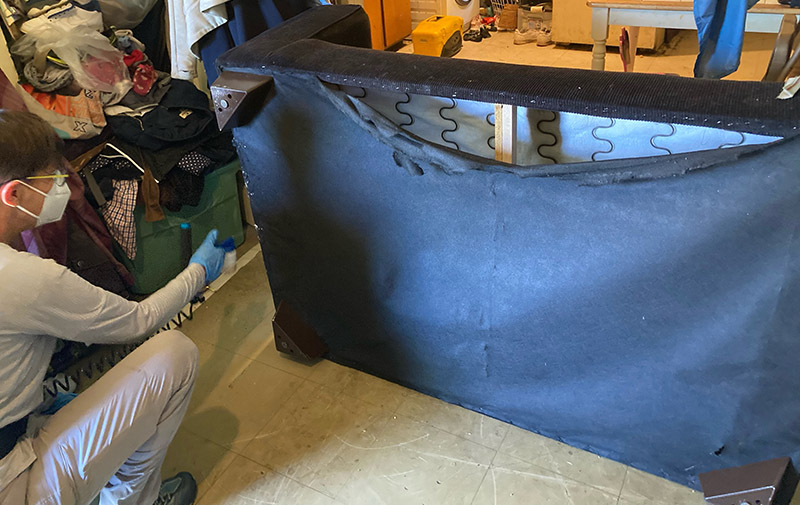By Stephanie Kalina-Metzger

As the saying goes, “Not all heroes wear capes” and in a nation that is divided, there is one thing on which we can all agree: the world would be better without shudder-inducing bed bugs.
Dr. Nina Jenkins, affiliate professor in the Department of Entomology at Penn State, has made it her mission to eradicate the diminutive pests which feed on the blood of unsuspecting humans and her work hasn’t gone unnoticed in the entomology world. In November, Jenkins won the Nan-Yao Su Award for Innovation and Creativity in Entomology for the development of Aprehend, a fungal biopesticide for the control and prevention of bed bug infestations. Jenkins secured an exclusive license for the patented technology from Penn State and co-founded ConidioTec LLC to produce and distribute the product.
Jenkins explains that ConidioTec was named after the fungal spores (conidia) from which Aprehend is made. The formulation is made specifically for bed bugs, which hide in tiny cracks and crevices and find hosts via carbon dioxide, human odors and warmth.
“They are nocturnal and emerge from their harborages to feed on our blood at night,” she said.
Exterminators can easily kill bed bugs that they can see, but the hidden bed bugs are far more difficult to control.
What sets Jenkins’ product apart from others is that it kills the bed bugs that aren’t visible.
“Exterminators can easily kill bed bugs that they can see, but the hidden bed bugs are far more difficult to control.” Jenkins explained, noting that the product is applied to surfaces where bed bugs are likely to walk when seeking a blood meal.
“They then carry it back to infect others in their hidden harborages. It’s like us walking in sand with wet feet,” she said.
As for safety, Jenkins assures that the product is a low-risk biopesticide. “The fungus is not a human pathogen and cannot grow at human body temperature,” she said.
Making inroads
Jenkins said that the Nan Yao-Su award recognizes that bringing this tech to market is of great significance and for that she is honored.
“We’re still very much a small-to-medium company, but it’s recognition like this that gives us credibility,” she said, adding that many labs study insect pathogens, but few end up bringing products to the hands of users.
Plans for the future
Jenkins said that the company successfully survived the pandemic and Aprehend is gaining traction in the industry.
“We are doing a lot of marketing, advertising and sending email blasts, but the very best thing is word of mouth,” she said, adding that the company is grateful for the early adopters who embraced the new technology and demonstrated its efficacy in the field. “They have become our key advocators,” she said.
The biggest challenge, according to Jenkins, is selling Aprehend to large, national extermination companies.
“It’s an oil formulation and requires a specialist spray kit and buying a new spray kit for every technician in a large, national network is a significant investment,” said Jenkins, adding that Aprehend does have an advantage over traditional methods that require pest managers to conduct several service visits. “With our products, once is generally enough and the industry is catching on,” she said.

